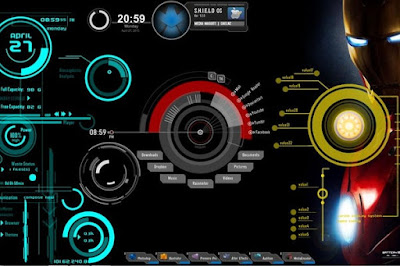GOOD COMPUTER
SECURITY HABITS
1. Password
2. Firewall
3. Antivirus software
4. Install updates
5. Check the URL
6. Anti-Spyware and Anti-Adware programs
7. Make regular backups of critical date
8. Use of content filtering software
9. Finding security holes in the network
10. Keep personal information private
11. Scan your machine
12. Disconnect your computer from the internet
Password:
It is always safer to use password for your computer, server,
routers, firewall, and important files so that only authentic user can access
the computer network or content of the files. The password should be a
combination of alphabet, number, and special characters. The password should be
changed at regular intervals.
Firewall:
Firewall is the extra level of security mechanism that is
used to protect your computer or network from intruders or hackers. A firewall
can be basically be categorized into hardware
firewall and software firewall.
The hardware firewall provides protection from most forms of
attacks coming to internal local area network.
The software firewall is a set of related programs installed
at the server or computer to protect them from the outside attacks.
Antivirus softwar:
To protect your computer from the attacks of viruses, you
should install the latest updated antivirus software in your computers.
Install updates:
Installation of antivirus and/or anti-spyware program is not
sufficient; you should regularly download the latest updates to protect
computer system from latest viruses, spyware, or adware.
Check the URL:
Sometimes you get URL address in your mail id. You should not
open that link provided to you unless you know that the page is secure. If the
page’s URL begins with https://, then the page is secure. The letter‘s’
indicates that the website user Secure Sockets Layer (SSL) technology.
Anti-Spyware and
Anti-Adware programs:
The Anti-Spyware and Anti-Adware programs can be purchased
separately or bundled with antivirus software and a firewall.
Make regular backups
of critical data:
It is a good idea to regularly keep backups copy of all your
important files on removable external hard disk, pen drive, or recordable CD or
DVD ROM disks so that one may not suffer data loss in the case or virus
contamination.
Use of content
filtering software:-
Parents should always keep a watch on the sites that their
children are accessing.
Finding security
holes in the network:-
System managers of the organization should work hard to track
down the security holes and bugs in the networks and close them before
intruders can track them and attack.
Keep personal
information private:
You should not provide personal information like name, e-mail
id, account information, driving license number, etc. on demand to anyone
unless you know who you are giving it to.
Scan your machine:
If you are find something suspicious and the processing speed
of the computer seems down, then you should scan your computer either through
the CD ROM of antivirus or using the online virus removal facility, which some
antivirus software vendor offer.
Disconnect your
computer the internet:
It is something safe to disconnect your system from the
internet unless you need it, so intruders may not have access to your personal
information or system.
Soon, I give you updates about TOP ANTIVIRUS ………..
Blog Presented by
~DEVESH DHOBLE
( Computer science
Department )
"The Innovation Hub"
(Team Member)
Visit
us on :-
Email id ....
"The innovation hub" join us on following
sites.....
You tube Channel like...
Twitter link..
Facebook link..
Instagram link..
Linkedin link ..
Innovative mixing of songs- channel END BAND link...
"Trending Research" you tube channel link..



Comments
Post a Comment